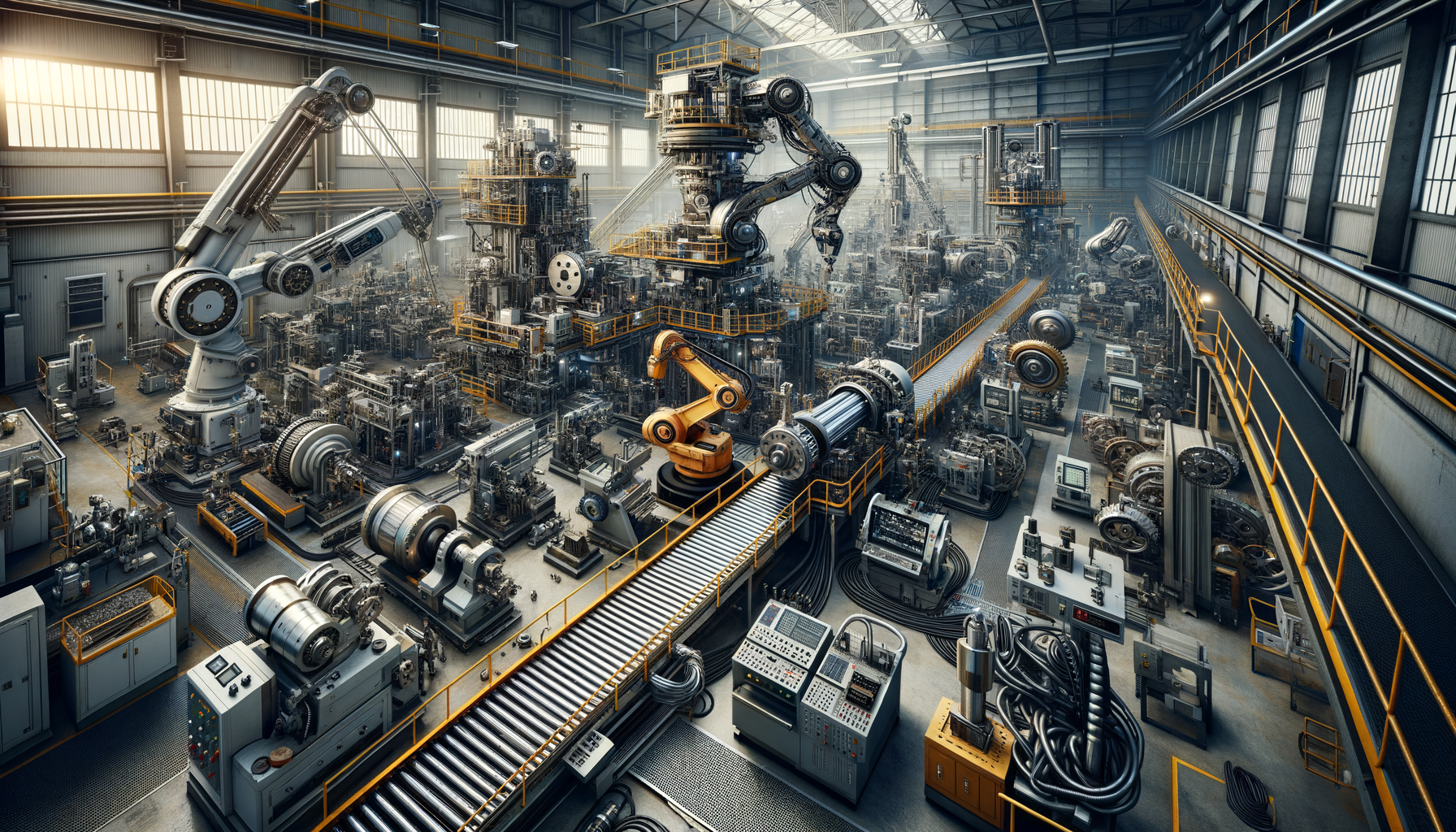Introduction to Industrial Machines
Industrial machines are the backbone of modern industry, providing the muscle and precision needed to perform complex tasks efficiently. These machines are integral to various sectors such as construction, manufacturing, and logistics, where they automate processes and ensure that large-scale operations run smoothly. With the rapid advancement of technology, industrial machines have evolved to become more sophisticated, offering enhanced capabilities and improved reliability.
Understanding the different types of industrial machines and their applications is crucial for businesses aiming to optimize their operations. This knowledge helps in selecting the right equipment that meets specific industry needs, ultimately leading to increased productivity and cost savings.
Types of Industrial Machines
Industrial machines come in various forms, each designed to serve specific functions across different sectors. Some of the most common types include:
- Construction Equipment: These machines, such as excavators, bulldozers, and cranes, are vital for building infrastructure. They handle tasks ranging from digging and lifting to transporting materials.
- Manufacturing Machinery: This category includes machines like CNC machines, lathes, and milling machines, which are used to shape and assemble parts in manufacturing processes.
- Material Handling Equipment: Forklifts, conveyor belts, and automated guided vehicles fall under this category, facilitating the movement and storage of goods within warehouses and factories.
- Packaging Machines: Essential for the food and beverage industry, these machines automate the packaging process, ensuring products are sealed and labeled efficiently.
Each type of machine is designed to improve efficiency and precision, catering to the specific demands of the industry it serves.
Applications in Manufacturing
In the manufacturing sector, industrial machines play a pivotal role in streamlining production processes. They are used for a variety of applications, including:
- Automation: Machines like robotic arms and automated assembly lines reduce the need for manual labor, increasing output and ensuring consistent quality.
- Precision Machining: CNC machines and lathes enable the production of intricate components with high precision, essential for industries like aerospace and automotive.
- Quality Control: Advanced machines equipped with sensors and cameras can inspect products for defects, ensuring that only high-quality items reach the market.
The use of industrial machines in manufacturing not only enhances efficiency but also allows companies to maintain competitive advantage by reducing costs and improving product quality.
Role in Construction
In the construction industry, industrial machines are indispensable for completing projects on time and within budget. They are used for:
- Earthmoving: Excavators and bulldozers are used to prepare construction sites by moving large amounts of soil and debris.
- Material Handling: Cranes and forklifts transport heavy materials, such as steel beams and concrete blocks, across construction sites.
- Demolition: Machines like wrecking balls and hydraulic breakers are used to safely demolish old structures, making way for new developments.
These machines not only enhance productivity but also improve safety by reducing the need for manual labor in hazardous environments.
Future Trends in Industrial Machinery
The future of industrial machines is being shaped by technological advancements, leading to more intelligent and efficient equipment. Key trends include:
- Automation and AI: Machines are becoming smarter with the integration of artificial intelligence, allowing for predictive maintenance and autonomous operation.
- IoT Integration: The Internet of Things (IoT) enables machines to communicate with each other, optimizing workflows and reducing downtime.
- Sustainability: There is a growing emphasis on developing eco-friendly machines that reduce energy consumption and minimize environmental impact.
These trends are set to revolutionize the industrial landscape, offering new opportunities for businesses to enhance their operations and stay ahead in the competitive market.
Conclusion: Embracing Industrial Machines
Industrial machines are a cornerstone of modern industry, providing the tools necessary for efficient and precise operations across various sectors. As technology continues to advance, these machines will become even more integral to business success, offering enhanced capabilities and greater efficiency.
By understanding the different types of industrial machines and their applications, companies can make informed decisions that lead to improved productivity and competitive advantage. Embracing the future trends in industrial machinery will ensure that businesses remain at the forefront of innovation and sustainability.




Leave a Reply